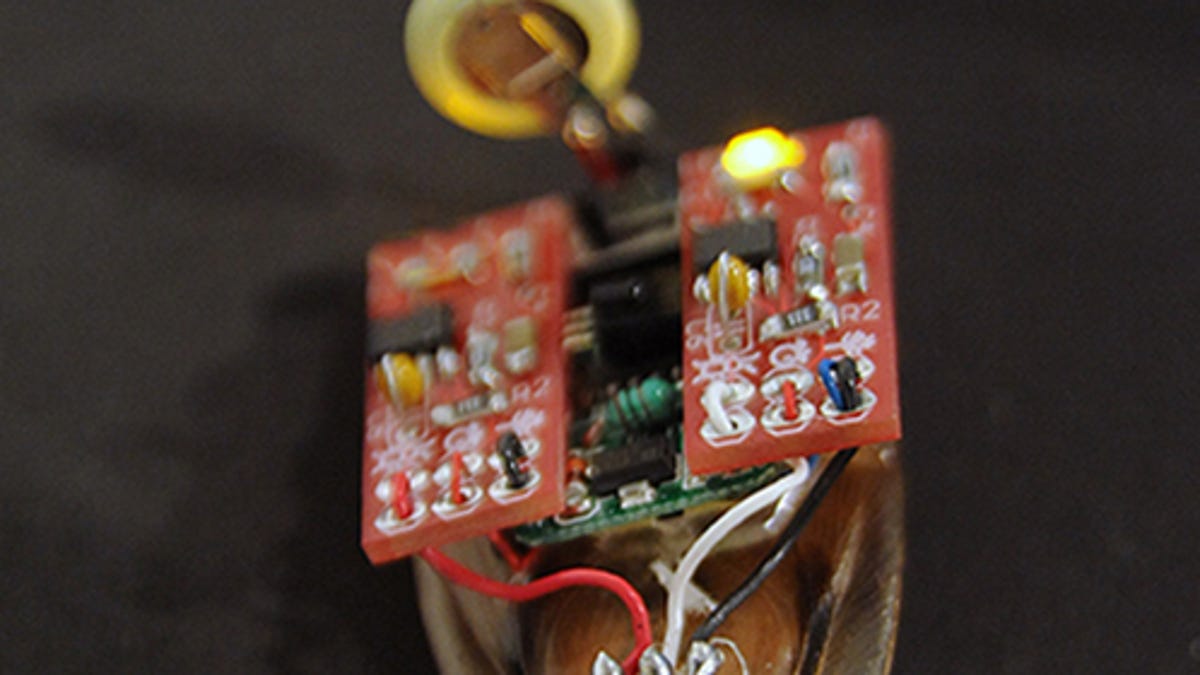Tap Twitter, control a cockroach
Almost as certain as death and taxes is the cockroach. Now one artist has turned the tables on the pesky arthropod by taming it with some tech components and Twitter.
Next time you see a cockroach, don't scurry away faster than it can flee. In fact, if you're a lover of the weirder side of life, the intrusive insect could represent one heck of a science project.
For example, artist Brittany Ransom created Twitter Roach -- a discoid cockroach that can be controlled through tweets that it receives on the popular microblogging service.
As it turns out, humans can actually control cockroaches with a device called RoboRoach -- a tiny electronic backpack that attaches to a cockroach and stimulates the bug's antenna nerves, enabling the controller to turn the insect left or right with the press of a button.
Ransom built upon the Roboroach concept and added some Arduino hardware and custom-programmed software to link the bug to Twitter. While on display at the "Life, in some form" art exhibition by the Chicago Artists Coalition, visitors could send the @TweetRoach account commands such as "#TweetRoachLeft" and #TweetRoachRight."
Those of you concerned about insect welfare can rest easy; the roach didn't stay enslaved all day long. Ransom told Crave via e-mail that the bug "wears the backpack for short intervals" and "is only accessible to the Twitter community during designated times." To avoid a flood of commands, Ransom set the cockroach to receive no more than one tweet every 30 seconds.
Why would someone take on such a strange project? Ransom says she's exploring a kind of insectoid parallel to the digital overstimulation many of us experience today. She aims to see if the cockroach can learn to eventually learn to adapt and ignore the stimulating effects of her setup.
"At what point does its intelligence and ability take over? How much does it take before we are all desensitized to overstimulation? As we, as human beings, grow more cyborgian and interconnected through social media, this project helps us participate in discovering the answer," Ransom said in an e-mail about the project.


